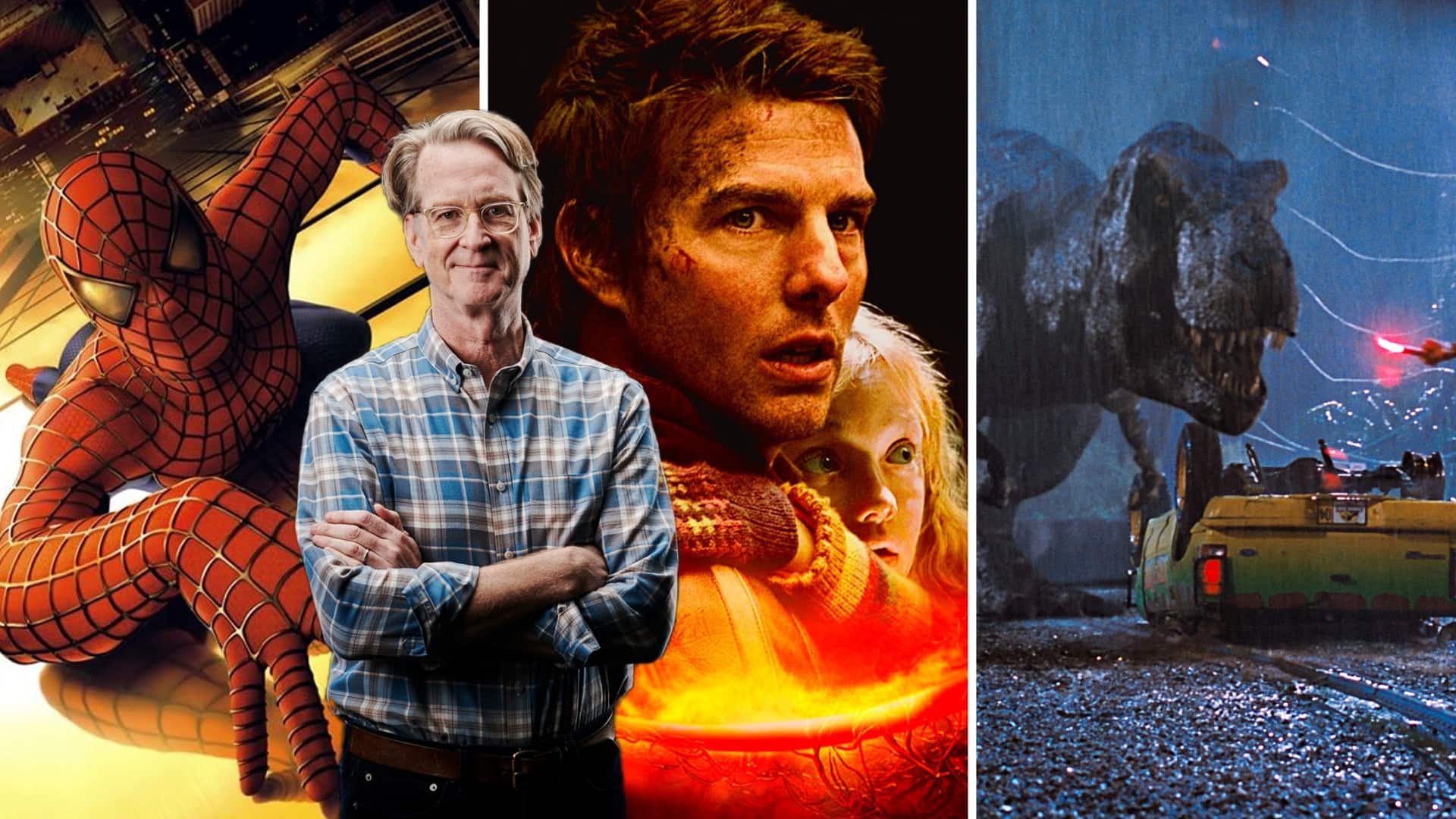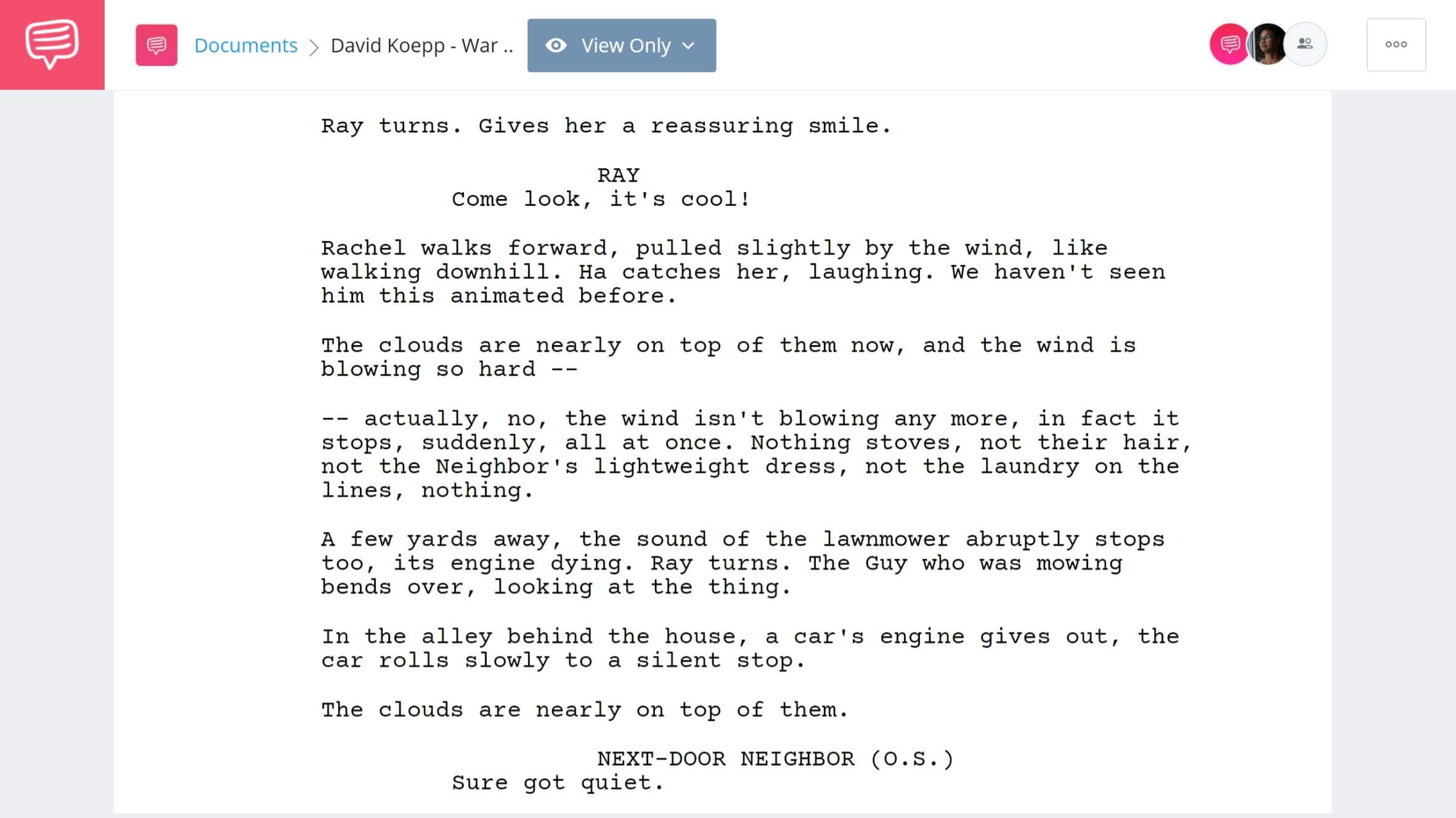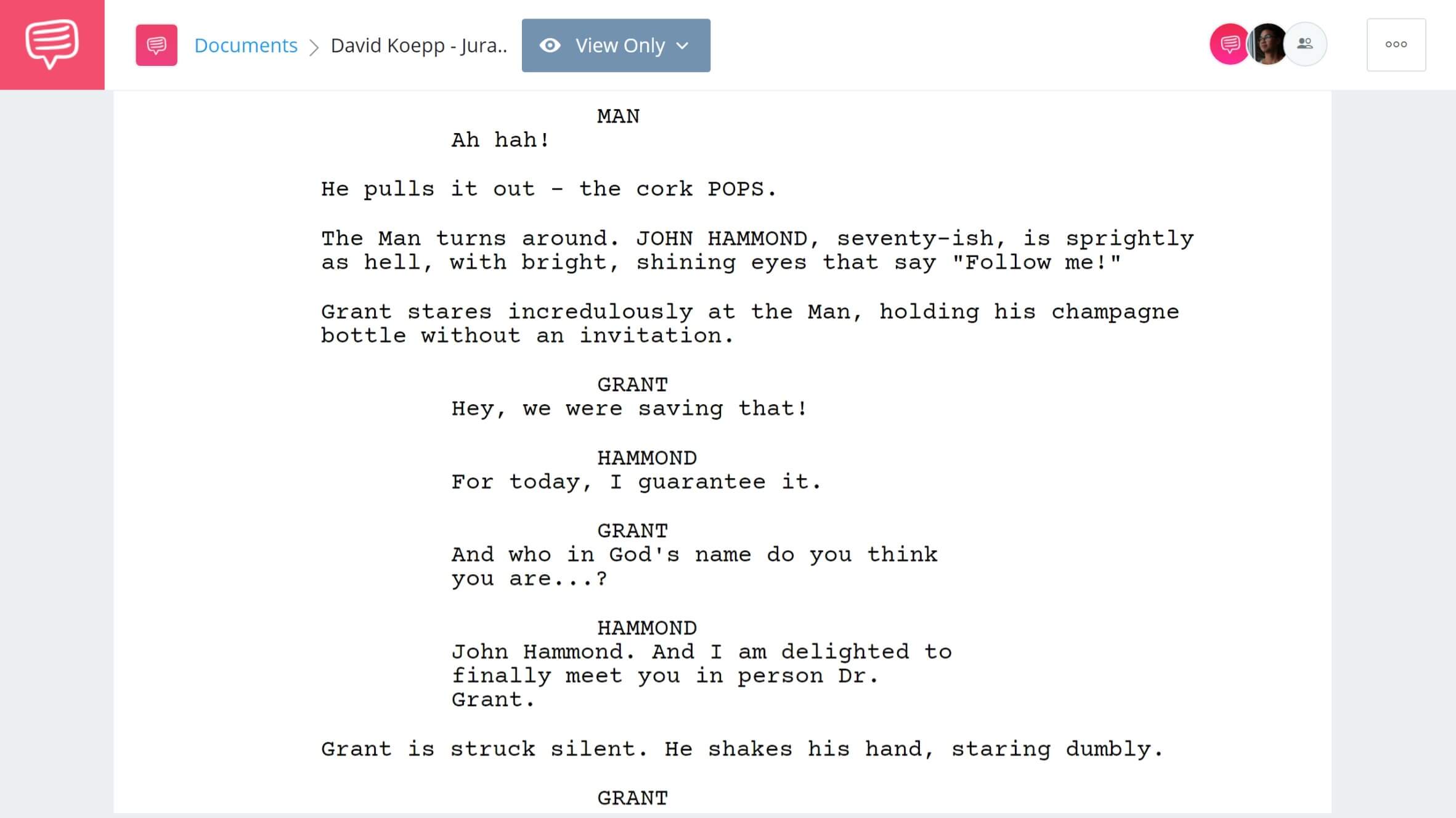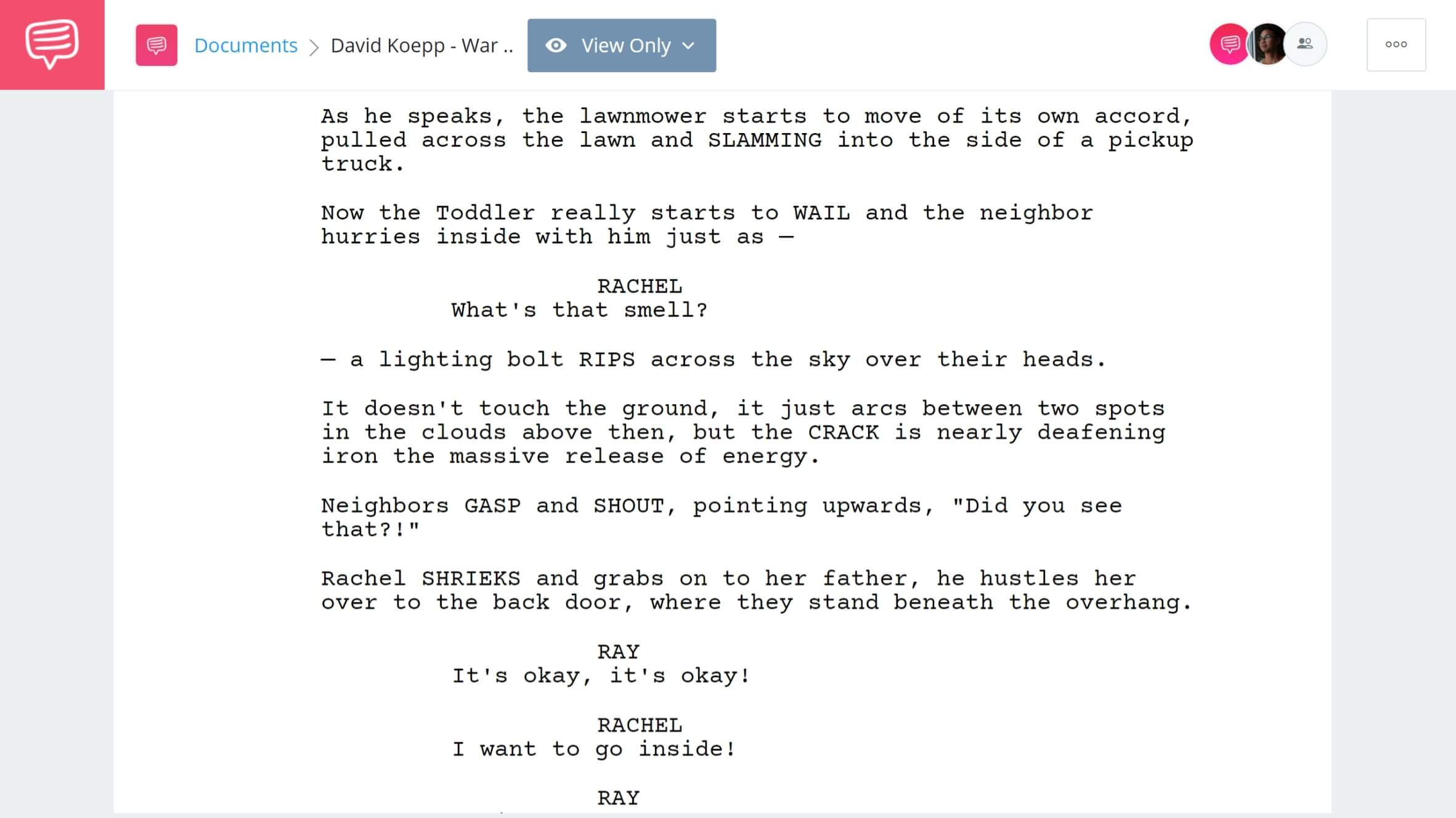David Koepp may be famous for writing the action-packed blockbusters Jurassic Park and Mission Impossible, but his decades-long career as screenwriter boasts a far more diverse, and abundant, oeuvre. From romantic or black comedies to thrillers or moody suspense, Koepp’s stories take audiences on entertaining rides, no matter the genre.
who is david koepp?
Who is David Koepp?
Screenwriter, Film Director, Novelist. David Koepp is all of these things and more. He was born and raised in Wisconsin, where he gravitated to the arts as early as high school. He studied Theater at the University of Wisconsin until transferring to UCLA where he received his Bachelor’s in film. He then learned the ins and outs of film distribution, working as an assistant. He saw his first screenplay on film, Apartment Zero with co-writer, Martin Donavon in 1988.
List of Koepp’s Most Popular Works
- Death Becomes Her (1992, Dir. by Robert Zemeckis)
- Carlito’s Way (1993, Dir. by Brian De Palma)
- Jurassic Park (1993, Dir. by Steven Spielberg)
- Mission: Impossible (1996, Dir. by Brian De Palma)
- Jurassic Park: Lost World (1997, Dir. by Steven Spielberg)
- Stir of Echoes (1999, Dir. by David Koepp)
- Panic Room (2002, Dir. by David Fincher)
- Spiderman (2002, Dir. by Sam Raimi)
- Secret Window (2004, Dir. by David Koepp)
- War of the Worlds (2005, Dir. by Steven Spielberg)
- Ghost Town (2008, Dir. by David Koepp)
Koepp’s Early Career
How Koepp Got His Start
Though Koepp acknowledges there are many ways to become a professional writer, he followed the tried-and-true system of calling anyone and everyone he knew, even when they were separated by several social degrees. This method landed him an agent. He had early success with Death Becomes Her in 1992 and was surprised by the star talent it attracted off the bat.
Director Robert Zemeckis took an interest in the script, and soon Goldie Hawn, Meryl Streep, and Bruce Willis came on board.
Meryl Streep Faces Off With Goldie Hawn in Death Becomes Her
This early hit instantly put David Koepp on the map. He began a career as a writer at Universal Studios and it wasn’t long till Steven Spielberg tapped him to write his magnum opus, Jurassic Park.
Did You Know?
David Koepp is the ninth highest grossing screenwriter in the business having received over $2.3 billion, a figure that exceeds than the average screenwriter salary and has written over thirty scripts in the past three decades, around two dozen of which have been produced, making him one of the most profuse and successful screenwriters to date.
Koepp on Genre
What Koepp Writes About
David Koepp proves that screenwriters don’t have to be hemmed in by one genre to be successful. His produced work ranges from romantic-comedies (Ghost Town) to horror (You Should Have Left), and everything in between (Spider Man, Carlito’s Way, Mortdecai, Snake Eyes).
Koepp says he likes to change genres and styles so that he can find his freshness and won’t resort to old tricks. There are certain constants in his writing, however. “I’m always looking for the container I’m going to put the movie in,” Koepp shared in an interview with Cinematek.
Cinematek’s Dr. Anke Brouwers Interviews David Koepp in 2018
Koepp writes from his emotions, particularly his fears. The films Spider Man, Stir of Echoes, Secret Window, and Mission Impossible, though all of varying genres, feature protagonists who grapple with grief after losing loved ones in some capacity.
In Spider Man, Peter Parker loses his uncle unexpectedly to a street criminal. In Secret Window, Mort Rainey suffers after losing his ex-wife to another man.
The protagonists in these two films are unique characters responding to different kinds of loss in wildly opposing ways (one succumbs to his paranoia and becomes a murderer; the other vows to protect the streets and becomes a superhero).
Mort Rainey Processes His Wife’s Infidelity
Koepp manages to make the audience root for both characters not by appealing to their morality or crazy spidey skills, but by exposing their vulnerability and emotion.
Koepp on the Craft
What is Koepp’s Signature Writing Style?
In his interviews, David Koepp exudes the quiet confidence of a proven expert in his craft. He is unassuming and self-contained in person; he lets his writing speak for him. Like many screenwriting gurus, Koepp’s writing first and foremost champions clarity. He doesn’t goof off with fancy slug lines or prose. His writing is crisp, pithy, and clear.
But you don’t get to be one of the most successful screenwriters in Hollywood on legible screenplays alone. Koepp’s style is distinctive, marked by incredibly detailed and technical description and action sequences, everyday characters in extraordinary circumstances, epic fight scenes and witty, understated humor.
Spider Man (2002) Fight Scene
The opening sequence from War of the Worlds, a story found on many best sci-fi lists, leaves little room to the imagination, instead opting to explain exactly what the viewer sees in sedulous detail. For example, read this scene from Koepp's scrip that we imported into StudioBinder's screenwriting software. You can see how detailed and pragmatic the action/description is.
War of Worlds’ Opening • Read Full Scene
Nothing showcases Koepp’s signature writing style like Jurassic Park, which should be a case study in every screenwriter’s workbook. Here Koepp flexes his sense of irony and humor and also a very intuitive portrayal of characters that are at once unique and real. He attributes significance to every character, no matter how minor, in the script.
This builds suspense, because the reader doesn’t know which characters are significant enough to be spared and which will be the next carnivore’s snack. Koepp inherently understands that the devil, or in Jurassic Park’s case, the dinosaur, is in the details.
John Hammond’s Character Introduction in Jurassic Park • Read Full Scene
These examples from Jurassic Park, elucidate Koepp’s masterful character descriptions. In one or two lines, he encapsulates the essence of his characters with crucial information that we need to understand them. Within a second, the reader knows that Hammond is very charismatic and a dreamer, Nedry is slimy, and Muldoon is a bit of an alarmist. Koepp communicates this by showing it in his character descriptions.
He also eloquently demonstrates a character arc for the protagonist Alan Grant, who, at the beginning of the film, can’t stand children. By the end, after witnessing the bravery of the two young children he has to protect in the park, he realizes he loves them and might want some of his own someday.
Another element of Koepp’s style is a conversational tone that lightens the mood of otherwise tense scenes, and keeps the reader’s focus on the action. He is a master of delivering complicated narratives, that often deal with strange, supernatural or incorporeal events and explaining them in simple, understandable ways.
In War of the Worlds, a bizarre electronic lightning storm jars protagonist Ray and his family and their neighborhood. Though it is a symptom of alien invasion, at this point in the script, the characters can’t explain the strange phenomena. Koepp describes the scene in ways that we can understand but interjects his own casual input that allows the reader to take a breath.
War of the Worlds Excerpt of Koepp’s Style • Read Full Scene
Koepp describes the events with no ambiguity, but he doesn’t wax on with his description of action and events at the expense of losing his characters. Koepp’s ‘side commentary’ in the description such as “good thing,” “oddly,” and, “Hey, this is fun” interspersed throughout this scene outlines the action for the reader, but also helps them interpret the strange phenomena through the eyes of the characters. That way the audience doesn’t get lost deciphering the fast-paced sequences and world-building.
Another component of Koepp’s expert world-building? Expert exposition. In Jurassic Park, Koepp ingeniously packages what could be boring backstory into a fun scene in which an animated DNA strand explains the genetic process that resurrected dinosaurs from extinction to the visiting scientists in the style of a theme park ride.
Mr. DNA Explains Jurassic Park ‘Science’ In a Fun Sequence
One of the reasons this works so well, is because Koepp introduces the world through characters who are also new to it, Dr. Alan Grant and Dr. Ellie Sattler. They become proxies for the audience, asking questions that we may be asking, a useful strategy for writing exposition.
Studiobinder’s Guide to Writing Exposition • Subscribe on YouTube
For directing, Koepp deploys a very classic cinematic approach with lots of symmetrical shots, sharp, high-key lighting, heavy film score, and standard pacing. He also likes to play with reflections, using a lot of mirrors in his mise en scène to excavate layers in his characters.
He also has a penchant for incorporating fun, creative transitions, like in the opening for his rom-com, Ghost Town.
David Koepp’s Directing Style in Ghost Town
He has directed seven films overall, including noirs, horror, and comedy. Koepp has said his directing has influenced his writing. Now when working, he not only follows the formula for how to write a great scene but also makes sure “it’s not a bunch of overs and singles.”
Koepp on the Craft
What Koepp Says About Creating
Koepp has developed a writing routine that works for him, which includes painful hours of thinking, napping, and what he coins “weltering on the internet,” before his creativity strikes and he starts writing.
Koepp also recommends you write to please the audience, read out dialogue, and read as many screenplays and consume as much film as possible. Koepp can give you a head start with that, too. A few years ago, he released over thirty original film scripts to the public via his personal website.
Koepp has had a unique advantage over other writers in that he’s worked with some of the most renowned directors in Hollywood, including Sam Raimi and Brian De Palma. He admits that he unconsciously writes toward those auteur directors. He is practical about a screenwriter’s role. He advises that they defer to the director’s vision.
While he’s enjoyed being a writer-director, he observes an interesting trade-off. “Good movies happen all sorts of different ways. When you write and direct, you are giving up one crucial collaborative voice. When you set out to just record your script rather than interpret the script, writer-directors fail. Something about dynamism between two people’s ideas works particularly well in movies, in a way that it wouldn’t in a painting.”
As far as working with other screenwriters, Koepp recommends writers pair with other writers whose strengths complement, not copy, their own, that way they can divvy up responsibilities and compensate for any weak areas.
When working with producers, Koepp says to listen to their feedback and issues they surface, but not to accept all of their ideas for improvement, carte blanche. “Otherwise, you’ll lose your voice.”
But the main takeaway from Koepp? Impart a vision into your script that is so strong, directors and producers can’t misinterpret it. Then, you’ll have a chance to see your vision on screen.
Koepp on the Craft
How to Break In, According to Koepp
How do I become a paid screenwriter? Always the question that itches new writers. Koepp takes a practical stance on this: “The first responsibility of an artist is to pay your rent.” He recommends not posting at an agency nor writing coverage, unless you want to go the route of becoming an executive producer. He suggests you work in a position that lets you write every day.
Koepp encourages writers not to be discouraged by failure as it’s a requisite of the job. “It’s dealing with failure that defines you as a person.”
Did You Know?
Early on in his career, Koepp landed his first agent by calling the high school classmate of an old girlfriend? He followed William Goldman’s advice in Adventures in the Screen Trade and asked everyone he knew if they had agent contacts and then passed on his script to them. A friendly reminder to take advantage of your connections!
In Conclusion
What’s in Store for David Koepp?
Even after achieving tremendous success, Koepp has no intentions of stopping.
In 2020, he produced an original horror film he wrote called You Should Have Left, starring Kevin Bacon and Amanda Seyfried. He’s also a living testament that writers can always grow and change, no matter their age or background. After thirty years writing screenplays, he decided to try his hand at books. He completed his first novel in late 2019 called Cold Storage. And then followed that up in 2020 with a horror novella featured on Audible called Yard Work.
Koepp proves that writers don’t have to be pigeon-holed into creating within one genre. By constantly pursuing what he loves, he’s gifted audiences worldwide with some of cinema’s most enduring classics and timeless stories.
UP NEXT
How To Write an Adaptation
Of over two dozen produced screenplays written by David Koepp, more than half of them are adaptations. Look up your favorite films and television shows. There’s a good chance they are adaptations, too. Check out this guide for tried-and-true methods to write amazing adaptations.



